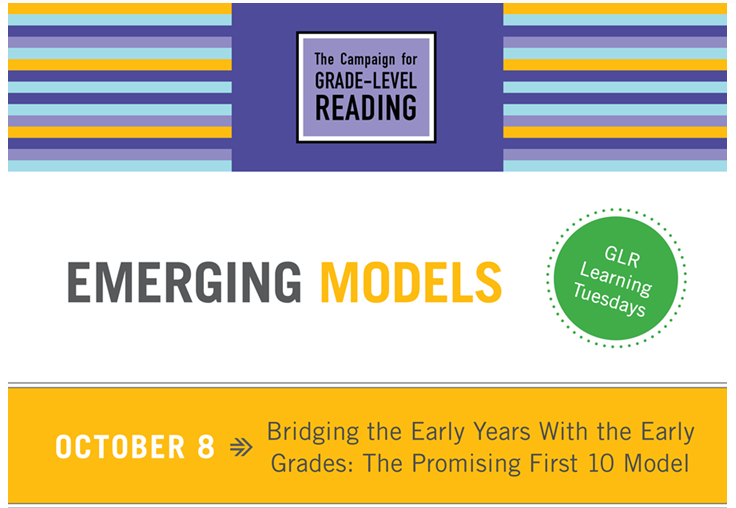Building Sturdy Bridges: Prioritizing the Transitions to Kindergarten and First Grade

Each month, First 10 communities from across the U.S. come together to share best practices at First 10 Network Meetings. In September, we were joined by two special guests: Swati Adarkar, Deputy Assistant Secretary of Policy and Early Learning at the U.S. Department of Education (ED), and Ralph Smith, Managing Director at the Campaign for…
Practical Ideas for Deepening Family Partnerships
We at First 10 were excited to welcome Dr. Karen Mapp to our May network meeting. Dr. Mapp, a Senior Lecturer on Education at the Harvard Graduate School of Education (HGSE) and Faculty Director of the Education Policy and Management Master’s Program, developed the widely-used Dual Capacity-Building Framework for Family-School Partnerships for the U.S. Department…
How Head Start Programs Can Drive Change in their Communities
All across the country, Head Start, school, and community organizations are working to address the fundamental fragmentation that characterizes our mixed-delivery early childhood systems. In my work leading First 10 school-community partnerships, I’ve witnessed the vital role that Head Start and Early Head Start programs play in supporting the whole child and promoting family well-being. Head Start…
Taking Action for Children and Families: Learning from the First 40 Communities (Post #1)
“The ultimate goal of a stronger, more seamless care and education continuum is to initiate and sustain a strong foundation for future success by providing effective learning opportunities across the infant-toddler years, preschool ages, and early grades in all settings.” (National Research Council, Transforming the Workforce for Children Birth through Age 8: A Unifying Foundation).[1]…
The Top 10 Takeaways from the ‘School-Community Partnerships for the Whole Child’ Webinar Series
New America’s Elise Franchino has summarized our recent webinar series in 10 takeaways. Check out her post here. She includes great insights from the presenters. Many thanks to all the panelists, moderators, and partner organizations! You can find the webinars and associated resources at these links: Collaborate to Improve Teaching and Learning Coordinate Comprehensive Services…
How States Can Support the First Decade of Children’s Lives
[wpvideo mq1WlvRC] Sponsored by the National Association of Early Childhood Specialists on October 17th, this webinar explores the implications for state policy of the recent study, All Children Learn and Thrive: Building First 10 Schools and Communities. This report looks at innovative schools and communities that combine alignment across early childhood and elementary education and care (children’s first…
Campaign for Grade Level Reading Webinar: First 10 School and Community Partnerships

The Campaign for Grade Level Reading is holding a webinar on First 10 School and Community Partnerships on October 8 from 3:00–4:30 ET.. Please join me, Cris Lopez Anderson (Buffett Early Childhood Institute), and Brooke Chilton-Timmons (Multnomah County Department of Human Services) to learn about the exciting work happening in these communities. You can find…
Education Week Reviews the All Children Learn and Thrive Study

Education Week’s Christina Samuels begins her review of the All Children Learn and Thrive study as follows below. I appreciate that she highlights several examples from the study. While the Executive Summary provides the key findings and proposes a theory of action, see the Full Report for numerous case studies and a fuller explanation…
Version 2.0: A Theory of Action and 7 Principles for P-3 Partnerships
This post updates a theory of action and 7 associated principles that I first posted last year. I’ve revised a few of the principles, and the principles line up with the graphics much more clearly now. I also draw attention to three distinctive features of the theory of action. According to the blogging platform Medium, this post…
New Study: Community Partnerships for Early Education
I’m pleased to announce that EDC has received a grant from the California-based Heising-Simons Foundation. The grant is funding a study of place-based approaches to improving early learning outcomes for young children. I will work with my colleague, Kyle DeMeo Cook, to investigate three types of community partnerships for early education: Cradle-to-Career partnerships that bring…